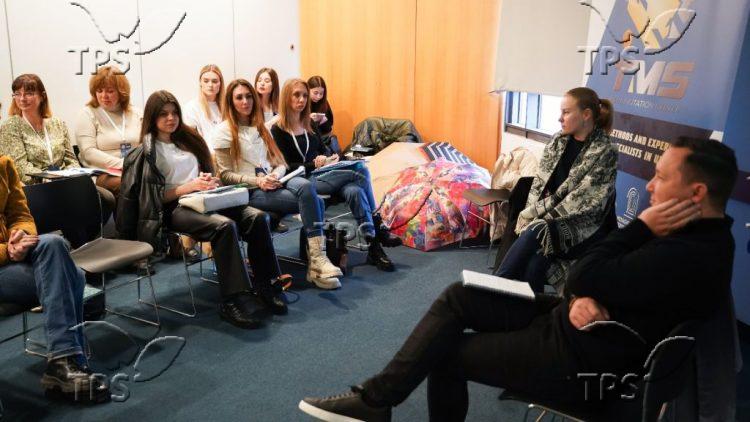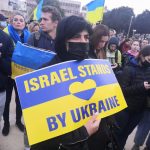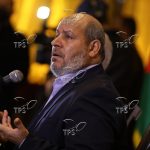Israelis Support Ukrainian Soldiers on Front Lines with Innovative PTSD Therapy
Jerusalem, 6 March, 2023 (TPS-IL) -- With the Russian-Ukrainian war hitting its one-year mark, millions of Ukrainian soldiers and civilians are suffering post-traumatic stress disorder, two Israeli-Ukrainian businessmen have teamed up to help soldiers and civilians regain emotional stability.
Post traumatic stress disorder, or PTSD is a psychiatric disorder that many people develop after experiencing traumatic events. It is particularly associated with exposure to combat, childhood physical abuse, sexual violence, disasters, terror attacks and other life-threatening situations. Victims often experience nightmares and flashbacks, feel estranged from people, or have intense feelings of fear, sadness or anger.
That opens up an entire generation of Ukrainians to PTSD, including soldiers on the frontlines and civilians living under deadly Russian missile strikes on infrastructure and residential buildings.
‘You See and Hear Things No One Should Ever See or Hear’
Andrei Pavlov, a 22-year-old infantry soldier from Kyiv, fought in Luhansk and Donetsk, and is currently stationed in Kharkiv.
“The fighting is intense. Explosions are everywhere. I haven’t slept a solid night since the draft, and even on a night when I’m not fighting, I can’t sleep,” Pavlov said.
“When I fall asleep, I wake up from nightmares. It’s really, really tough. Life on the front lines isn’t something you can describe. You see and hear things no one should ever see or hear. ”
Shay Gutman and David Roytman, Ukrainian-Israeli nationals, founded PTSD treatment centers for soldiers returning from the battlefield, as well as a special seminar in conjunction with Israel’s Menachem Begin Heritage Center which brought Ukrainian psychologists and social workers to Israel with the goal of teaching them to cope with the new situation on their home front.
“This is a groundbreaking project in Ukraine and Israel that is already offering relief to hundreds of soldiers suffering post-trauma who are struggling to rehabilitate and assimilate back into civilian life,” explained Gutman, the man behind TMS Rehabilitation Center.
Said Pavlov, “We really welcome the TMS therapists who brave the bombs and come out to the front lines to help us. They’re real heroes.”
Several years ago, Gutman opened the TMS League in Ukraine to promote sports in his native country, specifically Brazilian jiu-jitsu, which he says is helpful for young people dealing with various physical and emotional challenges.
Over time, TMS grew into a giant league encompassing thousands of athletes. But, said Gutman, “As the war stretched on, we felt that the need to help soldiers and disadvantaged civilians, and to preserve the emotional health among Ukrainians, took precedence over sports, and we knew that it was time to do more.”
He recruited his friend David Roytman, internationally-acclaimed artist and philanthropist.
Roytman, who owns a luxury Judaica company, is no stranger to the trauma of war. Born in Soviet Odessa, he moved to Israel as a young teen where he enlisted in the Israel Defense Forces. During his military service, Roytman fought in Operation Defensive Shield, a 2002 campaign against Palestinian terror groups in Judea and Samaria. Roytman saw combat in the Jenin-area refugee camps, suffered PTSD, and eventually found his healing “through art.”
He continues to use abstract art to convey messages of healing and peace to others.
Three years ago, Roytman, who splits his time between Israel and Odessa, founded Kinder Velt, a center administering developmental and psychological therapies and counseling to local children from disadvantaged backgrounds. With the outbreak of hostilities in the region, many of the children fled, and the center closed.
However, as the war continued, ravaging the country, Roytman reopened his center to bring healing and relief to hundreds of suffering children.
Joining Their Forces
Gutman and Roytman then joined forces.
“Shay pointed out that we both already had experience in this, so we wouldn’t be reinventing the wheel,” Roytman recalled. “What we were doing was just a copy-paste version, tweaking the system to make it work for the soldiers. And he was right.”
The colleagues got the project off the ground less than two months ago, and they are already offering help and emotional rehabilitation to soldiers in four cities—in Kyiv, Odessa, Dnipro and Chernivtsi. In addition, they also send delegations of psychologists directly to the front or nearby.
“The positive feedback we’re getting is tremendous,” Gutman said. “We’ve been to the front lines where the fighting is very heavy and soldiers fight round the clock. They greet us with open arms and beg us to come back. Unfortunately, there are many soldiers suffering serious trauma, and many feel that they can’t go on. One of the biggest challenges that these soldiers face is not knowing how much longer this will take, or if this war will ever end. They’re fighting nonstop for a year, and it’s taking a tremendous toll.”
Gutman added, “In the short time since we’ve started out, we’ve already offered great help to many soldiers. A critical part of the job was training the psychologists that we recruited in Ukraine for the task, since most of them lack knowledge and experience in this very delicate realm. Our idea was to train Ukrainian psychologists and teach them the tried-and-true Israeli methods of trauma counseling.”
The Menachem Begin Heritage Center got involved when Roytman contacted the center’s CEO, Herzl Makov looking for further support.
Although the center’s primary task is perpetuating the legacy of former Prime Minister Menachem Begin, Makov said that isn’t the organization’s only goal.
“We’re very devoted to dealing with the needs of the times, and this war necessitated training Ukrainian psychologists, so we agreed to host a group of 15 mental health professionals who underwent intensive trauma-treatment training by specialists from the Israeli Trauma Coalition,” Makov explained.
While it’s difficult to gauge their success in a relatively short period of time, Gutman and Roytman said they are encouraged by the feedback they get from soldiers.
“I believe that one of the reasons that we identify so strongly with the Ukrainian people right now is because they—like us—are battling forces far greater than them, and somehow, still enduring,” Gutman said.
“Besides for that, we—the Jewish people—have undergone many trials and tribulations throughout our nation’s history, and it’s very significant when we can cull from our experiences and suffering to help others in their time of need and hardship.”







